I was a Satyajit Ray film virgin … until few weeks ago.
The British Film Institute (BFI) is celebrating 100 years of filmmaker Satyajit Ray by showcasing his body of remarkable work.
And the first one that I watched is The Big City or Mahanagar that originally released in 1963.
I have to admit, I knew nothing about the film. I went in blind – didn’t read about it or watch any trailer. I also knew very little about Ray’s style of filmmaking – all of which took me by surprise. A pleasant surprise!
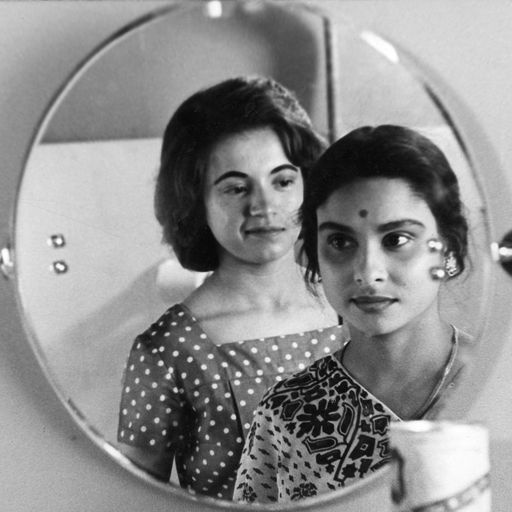
Still from The Big CityThe Big City is set in the 50’s in Kolkata (or Calcutta, back then) where the society is still adjusting to post-independent India. The film revolves around a middle-class housewife Arati, played by Madhabi Mukherjee, who nervously takes on a job to financially support her husband and her (extremely conservative) family.
What follows is a charming story of a woman experiencing her new-found independence (not to mention the joys of wearing lip color), defying expectations and finding herself becoming a successful businesswoman… all while thoroughly upsetting the family dynamics.
And this is what really got my attention –
The Big City very subtly touches upon conflicting social values, emphasis on a woman’s role at home and even the workplace, sisterhood, patriarchy and even the symbolic use of a lipstick.
It feels progressive for its time because we think the world was vastly different back then .. which it was to a certain extent, but the reason why it resonates with us today is because its relevant. And perhaps it was relevant even then… so I guess the question is have we really evolved, and if so, how much have we really progressed ?
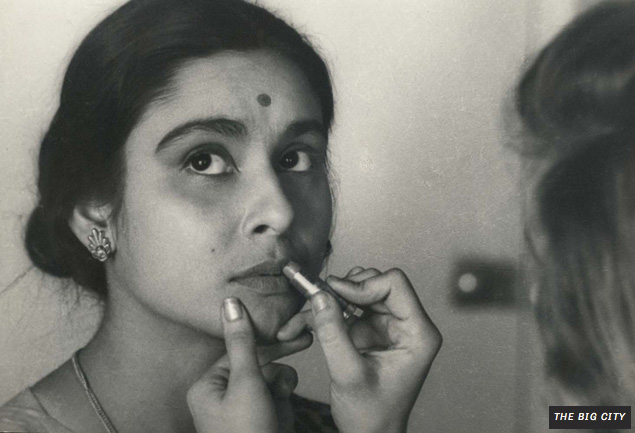
Still from The Big CityThis leads me to some key take aways from the film.
Please note, spoilers ahead.
A thriving independent woman’s success is directly proportional to bruising a man’s ego:
The film starts off when Arati takes on the job of a door-to-door saleswoman, and gradually finds her voice and her independence – financial independence. And that’s when the male ego of her husband kicks in, when he sees her flourishing at work. He is threatened that she’s earns more than him, enjoys her new-found freedom, has work friends, and simply relishes a little bit of color in her life … and on her face.
Patriarchy and double-standards:
What is it about men who refuse to ask for help from women or apologize to women… ?
It is noteworthy how Ray has portrayed men’s insecurities in the film. There are 3 primary male characters – the first one is the husband, Subrata whose insecurities and ego we’ve talked about.
The second is Arati’s father-in-law who is a retired, ailing schoolteacher and is perpetually disappointed with his son. And he refuses to accept money from his daughter-in-law Arati… because he belongs to the archaic times where women are “not supposed to work”. He would rather go and beg them for funds to survive.
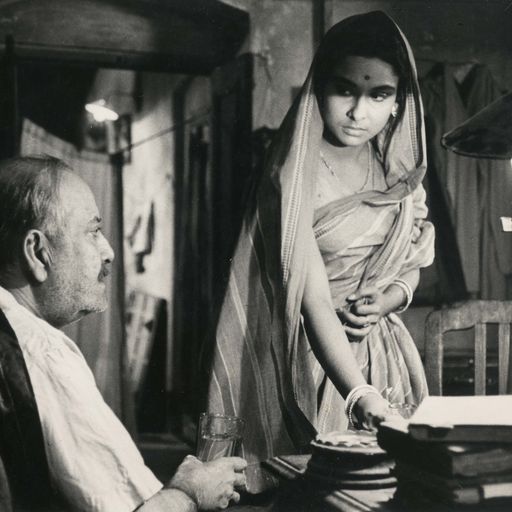
Still from The Big CityThe third male character is Arati’s boss, Himangshu, who at face value seems like a friendly, approachable manager but as the film progresses, we see different shades of his character.
The first is discriminating and stereotyping women – he disrespects and belittles a Caucasian colleague, Edith for demanding her rights at work simply because she’s not Indian and she’s more aggressive and assertive, compared to the other more docile women in the team.
This leads to another layer to his character – men prefer women to be passive and timid. Someone who doesn’t argue, doesn’t ask for too much. Enter Arati.
She’s all of the above – she’s shy, submissive, keeps her head down… and is obedient. And that’s why her boss prefers her to represent the team, rather than Edith.
Another (typical male) characteristic is revealed only when Arati’s personality develops into a more confident woman with a thicker skin, and she confronts Himangshu for patronizing and firing Edith. We see a full-blown MCP version of the boss.
All Arati wants is for him to apologize to Edith for insulting her, but Himangshu (as a man and as a boss) is too proud to admit his mistake.
The conflict between the two in that scene is quite emotionally charged.
Lastly, gender inequality at work… for pay as well as designation and roles
The door-to-door sales are conducted only by women, to persuade other. While the rest of the business is managed by men.
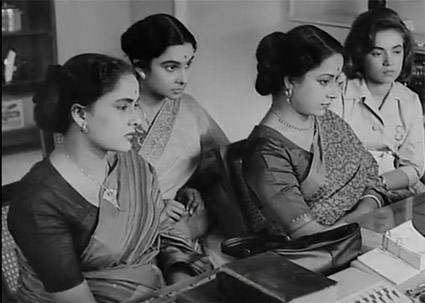
Still from The Big CityThe roles and designations of each team member restricted to prejudicial treatment due to gender, which is very common (even today) in a workplace.
Also, women are not fairly compensated for their time and efforts and are too afraid to ask for a raise. Again, very subtly portrayed how women settle for less, undervaluing themselves till they experience true independence.
While, on the flip-side, men just casually waltz into an office and get offered a “suitable” role.
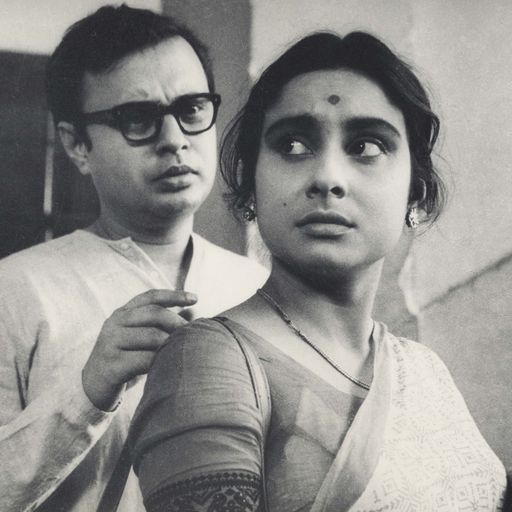
Still from The Big CityOn that note, if you’re in London and interested in watching Satyajit Ray work, the British Film Institute (BFI) is currently hosting a special retrospective of the filmmaker to celebrate with centenary. You can check out the full programme on their website and book your tickets.
Watch an exclusive interview with award-winning actress Shabana Azmi and filmmaker Sangeeta Datta on their experience working with Ray: